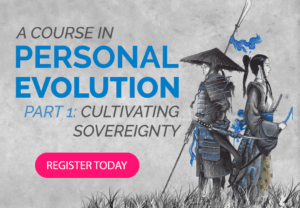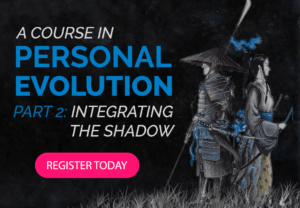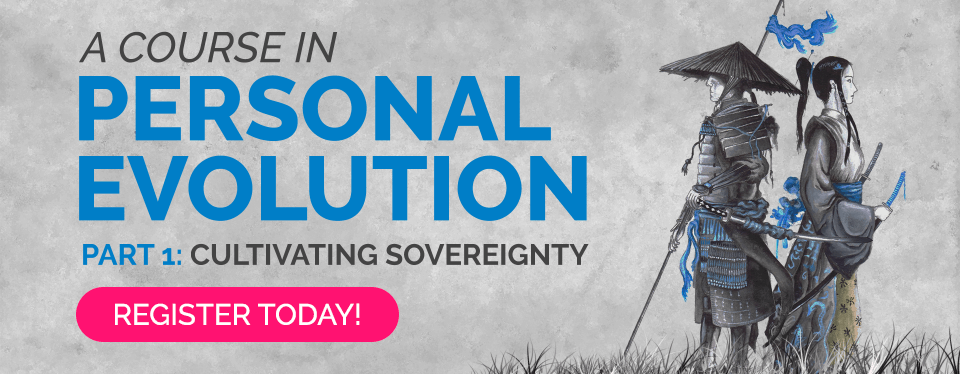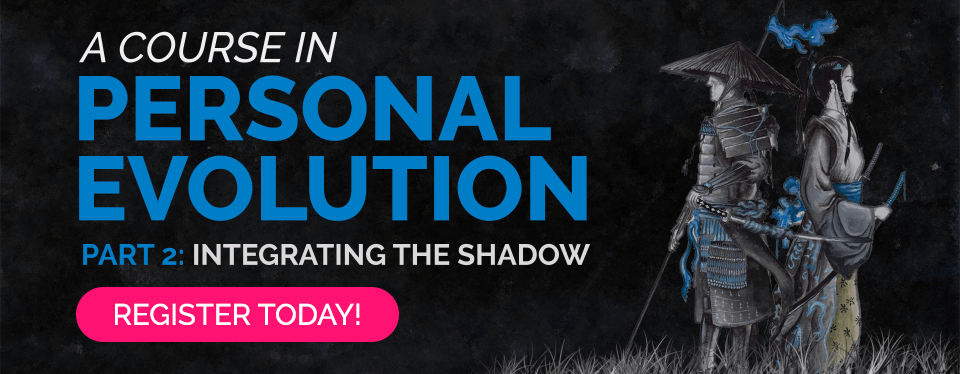Podcast: Play in new window | Download
Mike: This is episode six, it’s all about individuality – what makes you you.
Euvie: I think there isn’t really a consensus among people of what makes you you, so we wanted to explore some of the common ideas that people seem to come up with when that question was posed. The first one that comes to mind is something that is especially prevalent in the western society, but I think it’s also spreading to other societies in the world – [00:01:30] that’s your individuality as expressed through your preferences. Do you like Pepsi or Coke? What kind of jeans do you wear? What kind of car do you drive? Personalized cell phone covers. Are you a Mac guy or a PC guy? People are obsessed with these expressions of their mundane daily preferences.
Hipsters are a perfect example of this. They identify through the things that they like. “[00:02:00] I’m a huge coffee snob. I really like vinyl records.” I don’t think it’s necessarily bad but all those things are very external. You didn’t create those records, you didn’t create that coffee. Why are people identifying with it so strongly? I think it’s because of consumerism. I think that companies and anyone who’s trying to sell you something, they invest a lot of time and thought and money into making you personally identify [00:02:30] with their product. That’s how they get it out there.
Mike: Take away the coffee, the hipster scarf, and the skinny jeans and what are you?
Euvie: And the beards.
Mike: Yeah. What’s wrong with beards? Euvie, I express myself through this beard. My beard is everything.
Euvie: When I was younger, as a teenager and in my early 20s, I used to identify very strongly with the things that I liked. It wasn’t so much brand loyalty but I was very particular about the kinds of fashion [00:03:00] that I would wear, music that I would listen to. Now I look back and it just seems so silly to me.
Mike: I don’t really have a whole lot of place to comment on this because I’ve never really known or been part of groups of people like that. Being in Vietnam, I definitely see a lot more Apple stickers on the backs of cars here.
Euvie: Or you see in markets, for example, the same pair of underwear but with different waistbands, with different brands. People actually have a preference, even though it’s really obvious that they’re all [00:03:30] fake and they’re all made in the same factory, but no, “I like Calvin Klein, I don’t like Diesel.”
Mike: When you take away all those possessions and personal preferences, what’s left? What happened to you when all of those things no longer mattered? How did that come to be?
Euvie: A year and a half ago when you and I got rid of all the things we owned pretty much and moved to Thailand, that was such a liberating moment for me because all I have is this one backpack and that’s it.
Mike: [00:04:00] I remember actually right before we left, we had a little bonfire, a farewell to the last remaining things that we owned. A lot of your old artwork, a lot of paper stuff went out. It was just a catharsis, all of the stuff for that chapter of our lives being finished with. The old you, the you that expressed herself through the things that she owned, if faced with the borg and the prospect of assimilation and the loss [00:04:30] of identity, how would you feel about that?
Euvie: Terrified. I would have been terrified. My identity mattered so much to me and I thought so strongly about this that I was an individual, I was absolutely unique, there’s not a single person in the world like me.
Mike: Why did that matter? Who cares? Why is it important to be different and express yourself?
Euvie: It just felt like I was supposed to I guess.
Mike: What’s different now?
Euvie: I think I realized that all those [00:05:00] preferences don’t define me. I think it was a gradual change.
Mike: Just getting older?
Euvie: Maybe. Maturing and realizing that the legacy you leave behind is not based on the things that you prefer. Maybe your family will remember, “Yeah, she really liked jackfruit, that was her favourite fruit,” or whatever. On a grand scale, those people are not going to remember you by those things. [00:05:30] They probably are going to remember you by the things you’ve created and the ideas you put forth.
Mike: Actually, that’s a fun game to play. What would people say at your funeral? “Mike was a dick. He got on rants when he was drunk, talked about Tim Ferriss and tried to sell his shit to us all the time and convert us into starting businesses.”
Euvie: “He had a good beard though.”
Mike: “A really good beard.”
Euvie: To go along with this point that your ideas define you, would you say that’s [00:06:00] true for you? Do you strongly identify with your ideas or the things you create? Do you feel like they’re your babies, like they’re a part of you?
Mike: I think we’re talking about two different things here. We’re talking about the things external to us that we express as ourselves and the things that we create from within that we express as ourselves. Yeah, I do actually define myself a lot by what I create and by what I think people will remember me by. I’ve never really been that kind of person, even when I was a kid, who [00:06:30] identified with any kind of a brand or felt any status attachment to anything that I had. I don’t know, it gave me an ick feeling.
I wouldn’t necessarily say I was anti-conformist, but I never felt like expressing yourself in these kind of ways was meaningful, it just felt futile. That’s really all that does matter is what ideas you leave behind and what kind of impact you make. That’s something I think I really realized [00:07:00] after starting a business and after being able to accomplish a lot of my dreams. It’s something I realized – I don’t care about lying on a beach all the time and partying, I don’t care about any of that stuff. I want to actually do something, create value, do something that matters.
Euvie: What do you think about you changing or maturing, evolving as a person throughout your lifetime? Your ideas change [00:07:30] as you get older, and the things that you do change. Which one is you, or is it just a fluid concept?
Mike: I think it’s fluid, I think you can have pivotal moments in your life that change things, like a singular event that changed your whole paradigm. I think I’ve had small ones like that quite often, to the point where I think ‘me’ is a pretty grounded concept where I do feel like I haven’t changed a lot. [00:08:00] I mean, it’s all perspective, too, right? If the me of today met the me of three years ago, I’d probably not have a lot to really talk about.
Euvie: Do you think that if that is fluid, as well, then is there something bigger that makes you you, is it your essence?
Mike: I don’t think it’s random coincidence that we’re here or just a scientific anomaly or an accident. I definitely think there’s a purpose to this. I think there’s too many [00:08:30] coincidences on a day to day basis, or just in life in general, there’s too many things that happen that are like, “Wow, that’s got to be a sign. There’s got to be a reason behind this event that just happened.” I’ve had too many instances of that and I think it’s already such a crazy chance to be alive on this planet, in this form, after millions of years of evolution and billions of years of formation of planets.
I don’t think this is all an accident, so I do think that there’s a higher consciousness, [00:09:00] whatever you want to call it, whether it be a combination of all of our consciousnesses together, but I think it’s just temporarily focused in these bodies and then goes back to the way its greater form is when we die.
Euvie: I agree with that. I realized that and I think that’s why I stopped thinking that my individuality mattered that much, because humans were here for a very short time in the grand scheme of our universe. [00:09:30] If we think about our purpose here. We’ve talked about this before that creativity might be the reason why we’re here, to experience this life. We are the eyes and ears of the universe. We are the way that the universe experiences itself. I think that’s a really interesting way to think about it.
Mike: I’ve got this idea that the borg is a metaphor for what we’re currently doing, that through the internet and through our connectivity in this day and age, we are creating this hive mind and we are evolving [00:10:00] our own consciousnesses towards this all-inclusive consciousness. Privacy is a big issue right now, but in the future I don’t imagine that it’s going to imagine as much. We all know that we do things and have thoughts that are maybe a little embarrassing but we all do crazy things when we’re behind closed doors. I think that need for privacy is still an attachment to an egocentric viewpoint. You believe you are special, you believe that if people knew [00:10:30] what you really are that they wouldn’t like it.
Euvie: Every person only has full access to their own experience, their own thoughts, their own actions. Sometimes we think that maybe others don’t do the things that we do – and even if they say they do, we don’t get their full experience. The way that we are becoming more and more connected now, none of those things may even matter anymore: individuality, privacy, wanting to leave your own personal legacy. If you have full access [00:11:00] to other people’s brains, then maybe all you’ll want to do is just constantly create, create, create.
Mike: I feel like evolution is on the cusp of its own next phase of evolution. The concept of evolution is going to be changing. If you look at your environment here in Ho Chi Minh City, things are radically different than they were 5 or 10 years ago with the internet, with the booming new culture that is so engrained in technology, and the way technology has affected [00:11:30] the younger generations here. That’s just a microcosm – it’s all over the world that this is happening. I think our environments are changing way, way too fast for our bodies to actually keep up to it from an evolutionary standpoint.
We have to mentally adapt in order to physically adapt to every new location that we go to. The food, we need to be selective about the food before we dive right into spicy curries in a new country, or we’re just going to destroy our stomachs for the next few days. [00:12:00] Our consciousnesses, I think, are compensating for what our bodies lack. Because of that, I feel like this new paradigm shift of evolution is maybe designed that way. What I mean by that is I think it could be a natures model of evolution that our consciousnesses have to take over our physical evolution, where we have to start adapting physically through that mental catalyst, you know what I mean?
Euvie: Yeah. Turning genes on and off at will, maybe not through thought, [00:12:30] maybe through you inject a chemical and you can turn on and off.
Mike: Sure. Currently, the mechanisms exist externally to us, so we have to have the thought, then we have to go do the thing in reality, then we change our genes. For example, we don’t need fat anymore. It’s not like in modernized society there’s ever a shortage of food, you can always get food. We don’t need fat, we could turn those genes off and never have to use them again. That thought has to exist and then it manifests in reality, [00:13:00] then it comes back and affects our body. I think that’s just a current state of affairs. In the next few years, it might just be a direct connection to that, where we maybe have access to our own programming, our own genes, and we can be given that feedback loop and make those changes directly, rewrite our own programming.
We’re already doing it, right? We’re doing it through gene therapy, we’re doing it through augmentation. There’s this huge movement of the quantified self, [00:13:30] so that people can track themselves, know if they have any risk of future diseases, and be able to optimize themselves. In our microculture of entrepreneurs here in Zigong, everybody’s into that body hacking thing. Everyone wants to optimize every bit of their productivity of the day, to be able to get the maximum output. There’s things like that bulletproof coffee, there’s a new headphone out now that actually monitors your pulse and is also a pedometer, too. There’s just a complete access [00:14:00] in rewriting of the code that makes you optimal in your day.
Euvie: Which makes me wonder, in the future when we can replace parts of ourselves with machines, or neural implants, that will become so much easier because then you can just literally have direct access to your programming. I think that will become even more prominent as we start becoming less man and more machine.
Mike: It’s interesting to think that evolution could be going [00:14:30] extinct in a way, in our species at least. There’s so many things we might be able to do for life extension and longevity that will prevent us from dying. Then that whole idea that we evolve over generations completely changes. We evolve when we choose to. The first person to get to 150 years old is already born. If you think about that, if we can start taking life extension supplements now and if we could live to 100 or 120, that’s 100 [00:15:00] years from now and I have no doubt that that sort of technology can exist within 100 years, that we can turn off or reverse aging.
That’s a huge thing to think about. If we can just prevent accidents from happening, then there’s this point of that collective consciousness maybe being an option, where we can join the borg. Hugh says, “Don’t you ever get lonely?” Jordy says, “Sure, but that’s what friends are for.” I think that’s an interesting [00:15:30] idea to not need any external connections to people, to be inside each other’s minds at will and to share a singular greater mind. It is very God-like, isn’t it?
Euvie: Yeah, it is.
Mike: What’s the step after that? The individual turning into the collective consciousness. Once you get into God mode, you want to set up a new universe to experiment in?
Euvie: Maybe.
Mike: [00:16:00] Maybe you want to create a new lifeform and test if that lifeform will achieve God status.
Euvie: And join you.
Mike: Yeah.
Euvie: It’s very interesting. Thinking from that perspective makes me wonder how many other simulations or experiments there are out there.
Mike: Playing video games has got me thinking about this a lot. I used to play Grand Theft Auto, because it was an outlet for all my daily mental experiments. I just wish I could test different situations and then reverse [00:16:30] them and undo them if anything went wrong. Grand Theft Auto was always my playground where I could actually do that and everything would be reset. I love that situation. If I had a virtual reality to be able to do that, I would just live in that. I’d be setting up experiments all day and just testing out behaviour and physics, just anything I could possibly test with no consequences. Maybe on a greater level, that’s what this could be is just one big experiment, “Let’s see what happens, let’s see if they can achieve God mode.”
Euvie: “[00:17:00] Look, these guys are pretty close. They’re well on their way.” There’s a couple of good articles that I read recently and they talked about the process by which networks could become conscious. It’s based on the research of Dr Julio Tunoni. I don’t know if I’m saying it right. His idea is that consciousness is nothing more than integrated information. What he means by that is that when [00:17:30] there are many nodes in a system and they’re very well connected with each other and they constantly communicate between each other and they all have different functions, so they have to rely on each other for different information, the process of all those nodes communicating is what creates consciousness.
That’s how a human brain is structured – we have different parts of the brain that are responsible for different things, and all those parts communicate with each other to send and [00:18:00] collect information. This process creates the experience of consciousness. He’s been doing studies on patients in a vegetative state. He’s been testing their brain activity and it turns out that some of them have completely normal brain activity, fully functional brains. He also compared their brain response to certain forced stimuli. For example, he would put an electrode to a person’s head and send an electrical signal to their brain and see what pattern it creates, which neurons fire, [00:18:30] in what sequence, and how long that whole sequence is.
It’s usually very complex. He noticed that in persons who are sedated or asleep, those waves of firing are a lot shorter and a lot less intense. That explains what this whole idea of integrated information is. Less information is being sent, it’s being sent through fewer nodes, and not as far down if you’re not [00:19:00] fully conscious. If you’re really conscious, fully awake, it creates more of a wave. The more interconnected we become as humans, maybe we just become these nodes in a larger consciousness.
Mike: Maybe that’s already happening.
Euvie: Yeah, it’s possible. Maybe that’s what happens when you meditate, you just have access to this other consciousness.
Mike: I wonder if you asked an ant how it thinks it’s connected to the rest of the hive, and how it thinks it communicated with the rest of the hive, [00:19:30] it wouldn’t even really be aware I think of the rest of the hive, it’s just picking up on chemical signals here and there and it’s just responding to a set recipe in its brain of how to respond to those different chemical signals. It’s possible that we could be operating in a similar way, where we are responding to signals in our environment that we’re not aware of and that we’re communicating with each other in a way that we’re not aware of. That we’re communicating for this greater consciousness and receiving and sending information in ways [00:20:00] ways that we’re not aware of.
We don’t have a freaking clue what’s going on in the brain yet. There’s a lot of speculation and there’s been a lot of books created saying that the subconscious mind is actually functioning more like an antenna with greater consciousness or with each other and a psychic link. There’s a lot of psychic phenomena out there that has been proven to actually be happening but there’s no possible scientific [00:20:30] way, currently, to analyse how it’s happening. Actually, I would really like to know if anyone listening to this has heard of any crazy psychic phenomena that has had any basis for scientific testing. Has there been any lab tests on this? If you know of anything, send us a link. I’d really be interested to learn about that. Maybe we can do an episode about that.
I’ve been thinking about the concept of individuality a lot lately. What makes you YOU? Is it your personal preferences? The things you own? The things you do? The things you create? Your consciousness or soul?
Many people today would say that you are the things you like: what clothes you wear, which car you drive, what type of coffee you drink, which bands you listen to. But when you really think about it, all those things are just the stuff you buy. Companies just encourage us to “express ourselves” through our purchase decisions, so we get emotionally attached to their products and buy more stuff.
You are Not Your Things and Thoughts
When you take away all your possessions and personal preferences, what’s left? It’s the things you do in life, and your ideas. But even those things are fluid; they change over time as we become more mature and have different experiences. I am not the same person I was 5 years ago. I don’t do the same things or have the same ideas.
So if it isn’t your actions or ideas that make you you, could it be your consciousness? Energy concentrated into a cluster of atoms that make up your brain and produce an experience, which we perceive as consciousness?
Or could it be that none of us are really all that unique, and we just think we are because our own experience is the only one we have access to?
In this episode of the Future Thinkers Podcast
- [01:11] – What is individuality, and what factors define it?
- [06:05] – Consumerist individuality vs. individuality of ideas
- [09:52] – Privacy in the internet age and beyond
- [10:35] – Individuality after the technological singularity
- [12:27] – Body hacking and the quantified self
- [16:48] – How networks become conscious
- [20:46] – Why we started a futurist podcast, not a business podcast
Mentions & Resources
- The Borg from Star Trek, a documentary
- Higher consciousness
- Collective intelligence
- Quantifying consciousness, Dr. Giulio Tononi
- How networks could become conscious
- First person to live to 150 has already been born
- The most peaceful time in human history
- Bulletproof coffee
Recommended Books:
- The 4 Hour Body by Tim Ferris
- Tools of Titans: The Tactics, Routines, and Habits of Billionaires, Icons, and World-Class Performers by Tim Ferris
- Bold: How to Go Big, Make Bank, and Better the World by Peter Diamandis and Steven Kotler
More From Future Thinkers:
- Building Future Societies with Transparency and Freedom with David Brin (FTP024)
- Cyborg Buddha: Transhuman Enlightenment and UBI with James Hughes (FTP025)
- The Science Behind Synchronicity with Dr. Kirby Surprise (FTP037)
- Failed Utopias, Mapping the Mind, and Finding Meaning with Dr. Jordan Peterson (FTP038)






Comments are closed.
Hi there Mike and Euvie, got to your podcast while researching for the Fermi paradox (#3 in your series). I love your thinking on AI and your perspective on near future technologies. However, I would like also to weigh in the aspect of culture. Why are the so many UFO sightings since the nineteen fifties? Because a war (WWII) made us looking at the skies. Those kind of things. Let alone these ‘aliens’ had a tendency to encounter with drunken truck drivers or sailors or otherwise funny or silly people. Never a scientist ;-)
Anyway, the enhancements you are talking about that humanity will apply as AI will kick off to accelerate technology and science will somehow ‘bump’ into biological barriers and cultural ones too. Biology: as we reproduce the way biological species do, once AI will be the new standard, will biological reproduction with a certain level of randomness (creating new biological beings that are to a certain extent ‘copies’ of their parents but still different enough to gradually evolve and enhance by a certain way of natural selection, some randomness and adaptation) be replaced by copying and merging into just one ‘personality’ or being a logical advancement or is this advancement too much culturally coloured to be true? Anyway, just some thoughts. Maybe you could consider the cultural perspective as a viewpoint colouring our ideas of the future. Everytime a generation is asked how society and technology will enhance in a century we are basically extrapolating our current cultural perspective into the future. And because culture evolves too, our predictions neglecting this will mostly be wrong as we come to think of current culture as an end-state of evolution. It’s never an end-state but just a snapshot of evolution up to the point of current perspective. Anyway; keep up the good work!! Love to listen in to new episodes!!!
Great point! I wonder about that too. I’ve changed as a person in the few decades I’ve been alive; the societies I have interacted with have changed a lot too. We’re in a perpetual state of flux. I don’t think of AI as an end-game of evolution, but just as the next step. An AI can “evolve” and rearrange itself faster than genes can through biological evolution, so in that sense it is more adaptive.
In the podcast you mentioned you were looking for a scientific inquiry into PSI phenomena.
Dean Radin might be one of the leading figures in this endeavour so you might want to look into his work.
He published various books on the topic and you can also find a good talk by him here:
https://www.youtube.com/watch?v=qw_O9Qiwqew